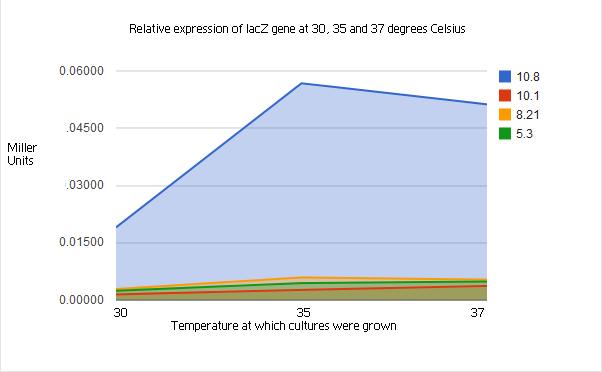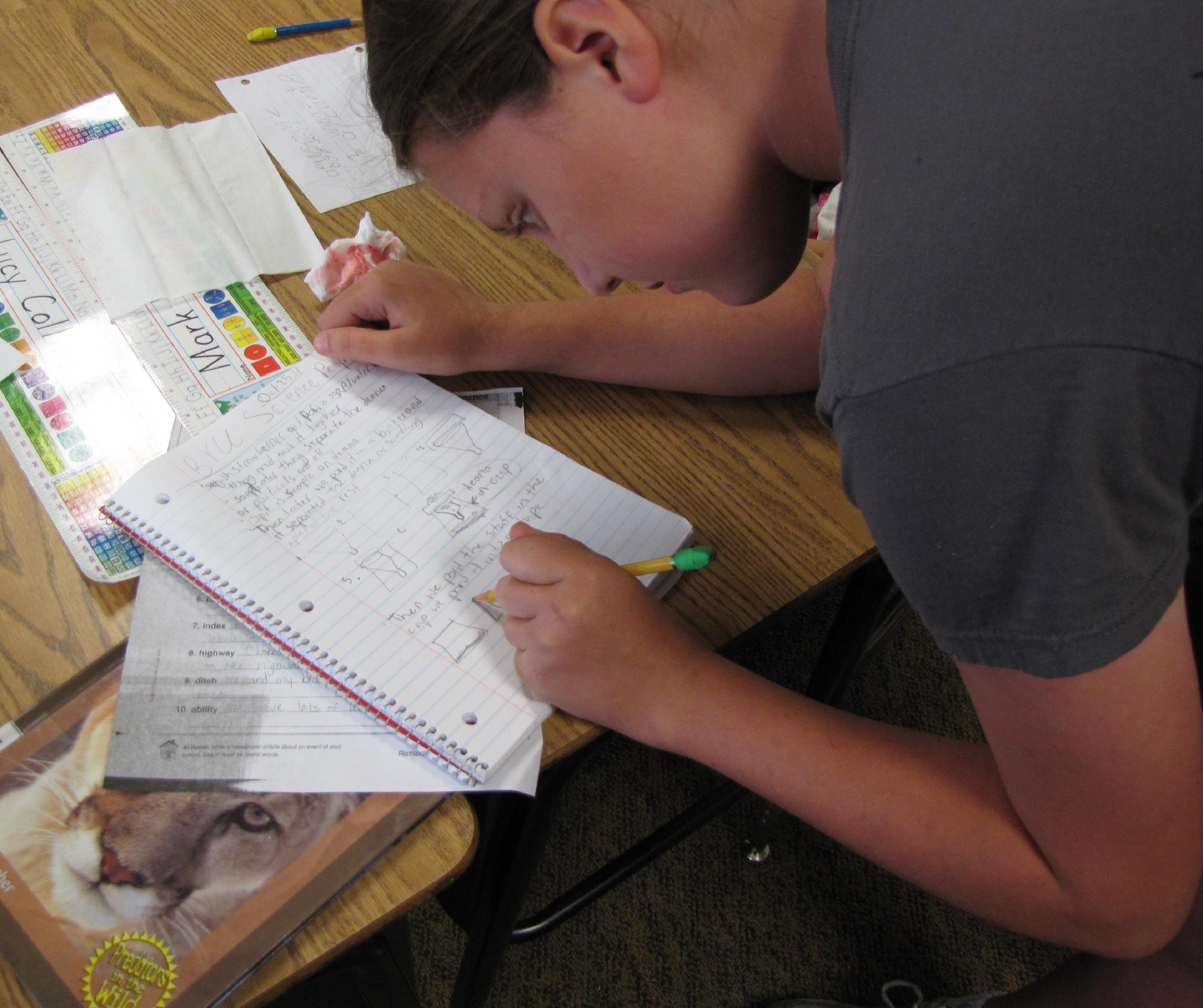Team:BYU Provo/Team OxyR/Week27
From 2011.igem.org
(→25 October 2011) |
|||
| Line 14: | Line 14: | ||
==25 October 2011== | ==25 October 2011== | ||
After growing the E.coli strains on plates at 30˚C, 35˚C and 37˚C, we suspended colonies in a saline solution to approximately 1.00 OD600 and repeated the beta-gal assay. This time all of the E.coli with our different thermosensors grown at 37˚C eventually turned yellow, but because of the time it took to turn yellow, our Miller Units were very low and data was not definitive. In the mean time, part of our team was inspiring future iGemmers in an outreach effort. | After growing the E.coli strains on plates at 30˚C, 35˚C and 37˚C, we suspended colonies in a saline solution to approximately 1.00 OD600 and repeated the beta-gal assay. This time all of the E.coli with our different thermosensors grown at 37˚C eventually turned yellow, but because of the time it took to turn yellow, our Miller Units were very low and data was not definitive. In the mean time, part of our team was inspiring future iGemmers in an outreach effort. | ||
| + | |||
| + | [[File:OD Oct 25.jpeg|500px|center]] | ||
=Outreach Efforts 25 October 2011= | =Outreach Efforts 25 October 2011= | ||
Revision as of 00:13, 29 October 2011

|
22 October 2011
Retried the beta-galactosidase assay again, but placed the cultures at 30˚C and 42˚C to see if we could get our thermosensors to allow expression of the lacZ gene. We hypothesized that the genes were acting over different temperature regions in a broth versus on a plate. The solutions once again refused to turn yellow, making us sad.
25 October 2011
After growing the E.coli strains on plates at 30˚C, 35˚C and 37˚C, we suspended colonies in a saline solution to approximately 1.00 OD600 and repeated the beta-gal assay. This time all of the E.coli with our different thermosensors grown at 37˚C eventually turned yellow, but because of the time it took to turn yellow, our Miller Units were very low and data was not definitive. In the mean time, part of our team was inspiring future iGemmers in an outreach effort.
Outreach Efforts 25 October 2011
- We began our outreach at a local elementary school. We decided to approach an elementary school because, for many of us, that is where the seeds were planted that grew our love for learning-especially science. Below are some activities we did with a class of fifth graders.
- We showed the kids how to extract DNA from strawberries. It was a fun experiment that got them thinking about DNA, genes, and cells. After talking about DNA we talked about how the genes found in DNA make strawberries strawberries. We got many curiosity questions like, "Could you make a watermelon strawberry?" The kids were very proud when their DNA extraction worked and they could see the DNA clumping up.
- To introduce the idea of bioengineering we did an active exercise with the kids. We had most of the class get in a circle formation around their desks, they created the cell. We then selected a few kids and labeled them with a specific gene (clockwise, smart, red, etc.). Once the "gene" made it into the cell, the cell had to express the gene. We explained how we can choose different genes like that to get the cell to do what we want it to do. We also gave them a new vocabulary word, Apoptosis.
 "
"



